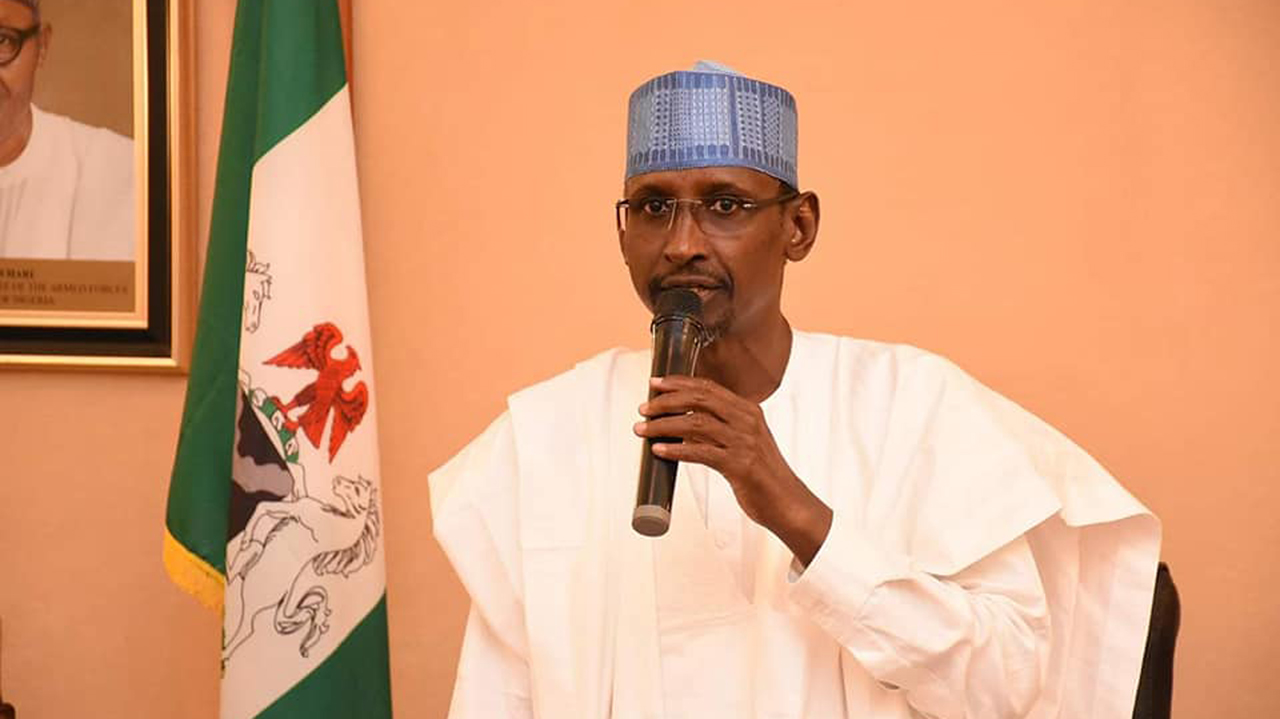Tackle the rot in Abuja
The unabated deterioration of infrastructural facilities in Abuja recently compelled the House of Representatives to summon the Minister of the Federal Capital Territory (FCT), Mohammed Musa Bello, to appear before it. This was even as residents of Abuja city and its satellite towns accused both the FCT Administration and the six area councils of allowing […]

Minister of the FCT Malam Muhammad Musa Bello
The unabated deterioration of infrastructural facilities in Abuja recently compelled the House of Representatives to summon the Minister of the Federal Capital Territory (FCT), Mohammed Musa Bello, to appear before it. This was even as residents of Abuja city and its satellite towns accused both the FCT Administration and the six area councils of allowing decay to set in on the existing infrastructure in the territory.
Moving the motion titled “Urgent need to arrest the fast deterioration of the Federal Capital Territory”, the Deputy Minority Leader of the House of Representatives, Toby Okechukwu, raised thoughtful concerns over the dearth and poor management of infrastructural facilities in Abuja. He expressed worry over the worsening state of waste management in the FCT, including poor maintenance of waste treatment plants. This is despite of a claim by the Minister of State, FCT, Ramatu Tijani Aliyu, that N8 billion was set aside annually for waste management in the FCT.
Okechukwu equally lamented the allocation of lands in the FCT without matching infrastructural development in those areas. He further complained of the non-appointment of Mandate Secretaries (equivalents of commissioners in states) to form the FCT Executive Council – about two years after the reappointment of Bello as FCT minister in 2019. The Abuja Metropolitan Management Council (AMMC) and Satellite Towns Development Department (STDD) are also being run by heads in acting capacity. With all files from the secretariats having to be channelled through the permanent secretary, the pace of service delivery is slowed down. Besides, heads on acting capacity have financial and administrative limitations.
So many operational and infrastructural aberrations have made Abuja lose the features that once made it one of the most beautiful cities in the world. Reports in the media have revealed that Abuja, which in the past was a dirt-free city, has become more filthy than ever imagined. While buildings are being erected under high-tension electric cables and on water and sewage lines, the refuse collection system has collapsed; with many sewage lines blocked. Each time there is rainfall, many roads within the city are flooded and therefore impassable. The flood that submerged and washed away many houses at the height of the 2021 rainy season is enough evidence of the life-threatening abnormalities that now characterise the environmental and development control mandate of the FCT administration.
The obstruction of traffic flow by cattle is now another common sight on most highways in the city. Traffic lights are no longer functioning along many roads and at different intersections. As at July 2021, only 62 out of the 172 traffic installations across the various districts in the FCT were functional. As many as 110 traffic lights were at various levels of malfunction. There could be some correlations between the faulty traffic lights and the high rate of road crashes in the FCT. Criminal elements also take undue advantage of faulty street lights to orchestrate heinous crimes at night.
Most of the over 400 fleet of buses popularly called “El-Rufai buses” provided by the administration of the former FCT minister, Malam Nasir El-Rufai, for the Abuja Urban Mass Transport Company (AUMTCO), are no longer functioning. The El-Rufai mass transport system eased the movement of workers and low-income citizens from satellite towns into and out of the city centre. The collapse of that system is not without its negative consequences on the productive hours of workers. Illegal motor parks have also sprung up in many parts of the FCT.
The non-provision of basic infrastructural facilities in the satellite towns compounds the problem of rural-urban migration in Abuja. In the original master plan, MDAs were designed to be located in satellite towns with a view to decongesting the city and reducing the influx of residents into it. Unfortunately, satellite towns in the FCT, which should be a model for rural development in Nigeria, have regrettably remained under-developed several decades after their creation. Government failed to provide basic infrastructure including potable water, roads and access to quality healthcare facilities. When government agencies and institutions establish their presence in satellite towns, other supporting sectors including banks will be attracted there.
While we call on the FCT minister to address the territory’s decaying infrastructure in terms of waste management, traffic lights, transport system and the development of satellite towns, the appointment of substantive secretaries for all the secretariats is also fundamental. Nigeria’s capital city, Abuja, is one strategic image of the country. Everything should, therefore, be done to return it to the ideals comceptualised by its foremost founders with a view to preserving the sanity achieved by previous administrations.
